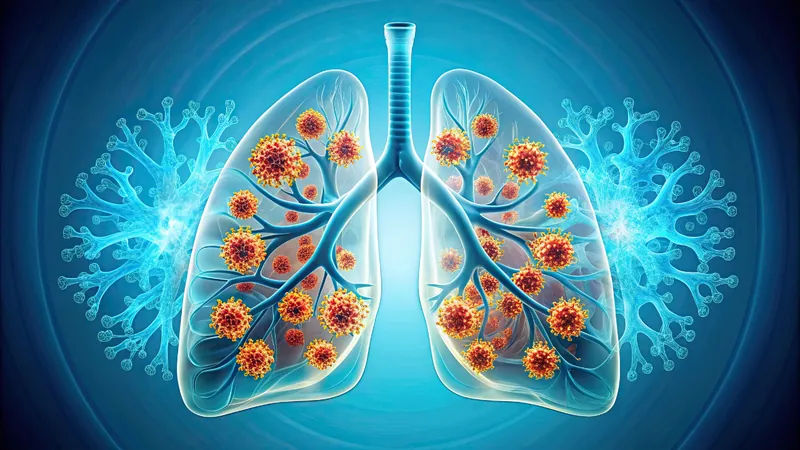
Breakthrough Treatment: ArkBio’s Ziresovir Revolutionizes Care for Infants with RSV
2025-04-16
Author: Siti
A Game-Changer for Vulnerable Infants
In a groundbreaking Phase III trial, ArkBio’s ziresovir (AK0529) has emerged as the first antiviral treatment to show both significant clinical efficacy and long-term respiratory benefits for hospitalized infants suffering from respiratory syncytial virus (RSV). This milestone is especially vital for infants under six months old, who are at the highest risk for severe infections. The comprehensive results were published in *The Lancet Child & Adolescent Health*.
Principal investigator Xin Ni from Beijing Children's Hospital expressed enthusiasm for these significant findings. "This pivotal trial provides the first solid evidence of an effective antiviral treatment for high-risk infants. Following prior publications, this deeper analysis reaffirms ziresovir's safety and efficacy, and we are excited to bring this drug to patients worldwide," Ni stated.
Trial Breakdown: Clear Results for Young Patients
The multicenter, randomized, double-blind, placebo-controlled study specifically assessed infants between one month and two years old with confirmed RSV infections. Among these, a subgroup of 188 infants aged six months or younger received either ziresovir or a placebo for five days, followed by a two-year observational period. The primary goal was to measure changes in the Wang Bronchiolitis Clinical Score (WBCS) after treatment.
Results for the infants under six months showed a 3.5-point decrease in WBCS for those treated with ziresovir, compared to just a 2.2-point decrease in the placebo group—a striking 54.5% relative difference.
Rapid Recovery and Long-Term Benefits
The benefits of ziresovir extend beyond immediate scores. By day five, infants in the ziresovir group experienced a significantly greater reduction in viral load, with a decrease of 2.51 log₁₀ copies/mL versus 1.87 log₁₀ for the placebo group. Moreover, ziresovir-treated patients recovered faster, with a 53% increased chance of resolving wheezing symptoms within that period.
Long-term data further amplified ziresovir’s advantages, showing a 3.6-fold decrease in recurrent wheezing in the treatment group, along with fewer overall wheezing episodes and a lower incidence of asthma.
Safety Profile: Promising Outcomes
While some treatment-emergent adverse events were reported—18% in the ziresovir group compared to 11% for placebo—there were no serious drug-related complications or deaths, highlighting the treatment's promising safety profile.
The RSV Landscape: A Critical Need for Effective Treatments
RSV remains a leading cause of hospitalizations among infants, with more than 2.1 million outpatient visits and around 600,000 hospitalizations annually attributed to this virus. Recognizing the urgency for effective treatments is crucial as RSV can lead to severe conditions such as bronchiolitis, especially in at-risk populations. Ziresovir’s promising results offer a glimmer of hope in the ongoing battle against RSV.
As ArkBio prepares to introduce ziresovir to patients, the medical community watches closely, hopeful for a transformative impact on infant healthcare.



 Brasil (PT)
Brasil (PT)
 Canada (EN)
Canada (EN)
 Chile (ES)
Chile (ES)
 Česko (CS)
Česko (CS)
 대한민국 (KO)
대한민국 (KO)
 España (ES)
España (ES)
 France (FR)
France (FR)
 Hong Kong (EN)
Hong Kong (EN)
 Italia (IT)
Italia (IT)
 日本 (JA)
日本 (JA)
 Magyarország (HU)
Magyarország (HU)
 Norge (NO)
Norge (NO)
 Polska (PL)
Polska (PL)
 Schweiz (DE)
Schweiz (DE)
 Singapore (EN)
Singapore (EN)
 Sverige (SV)
Sverige (SV)
 Suomi (FI)
Suomi (FI)
 Türkiye (TR)
Türkiye (TR)
 الإمارات العربية المتحدة (AR)
الإمارات العربية المتحدة (AR)